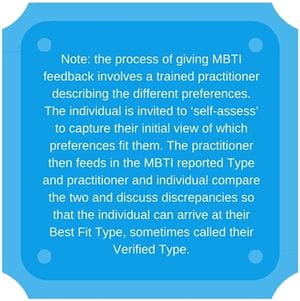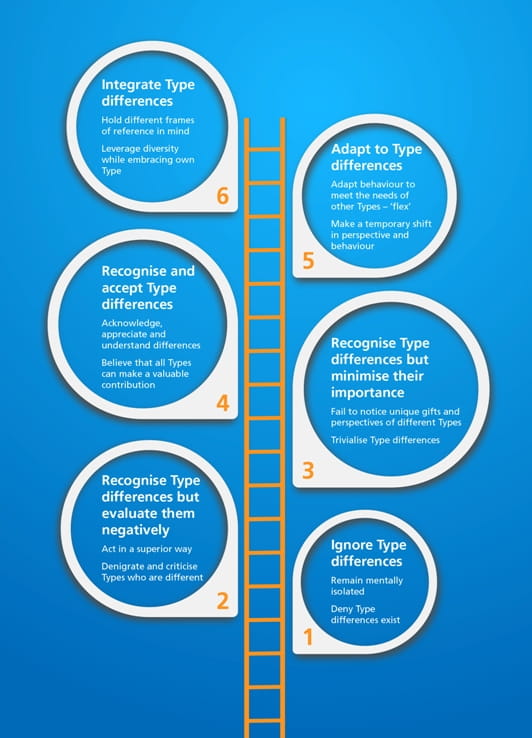Why bother with a questionnaire when working with MBTI Type?
Betsy Kendall - COO at OPP
I recently spoke to an MBTI® practitioner who asked: "Why do we need to ask our clients to complete the MBTI questionnaire? After all, we ask people to make a self-assessment of their preferences as part of the feedback process and then let people disagree with their reported Type if they want. So why can’t we just rely on that self-assessment and cut out the time involved in using the questionnaire?"

The answer goes to the heart of the purpose of the MBTI process, which is to increase self-awareness. If we don’t use the questionnaire and rely solely on the individual’s ability to self-assess, then we are assuming that they are already highly self-aware. That’s a big assumption to make, particularly when the Jungian Type concepts assessed by the Myers-Briggs Type Indicator are complex and multifaceted. Isabel Myers, the author of the MBTI, saw that people vary greatly in their level of (Type) development and self-awareness. As a result, the majority of her work in testing the accuracy of the questionnaire and its items was to ensure that, even for those who are less developed and aware, the MBTI assessment still provides a good indication of their Type preferences. That’s why the assessment contains straightforward, everyday questions that do not require any knowledge of Type to answer.
My 30 years of experience, and the research that we’ve done at OPP, shows that when someone’s self-assessment is different from the Type they report through the questionnaire, then about half the time they conclude that the reported Type is the one that fits the best, and half the time they feel the self-assessed Type is closer. This means that if these people hadn’t taken the Indicator then about half of them would have ended up with the wrong Type.
And what do we mean by good self-awareness anyway? I find it helpful to think about a ladder of Type self-awareness.

Taking the MBTI questionnaire and receiving professional feedback enables people to move one or more rungs up the ladder, whatever their starting point. It’s a step up for self-awareness.